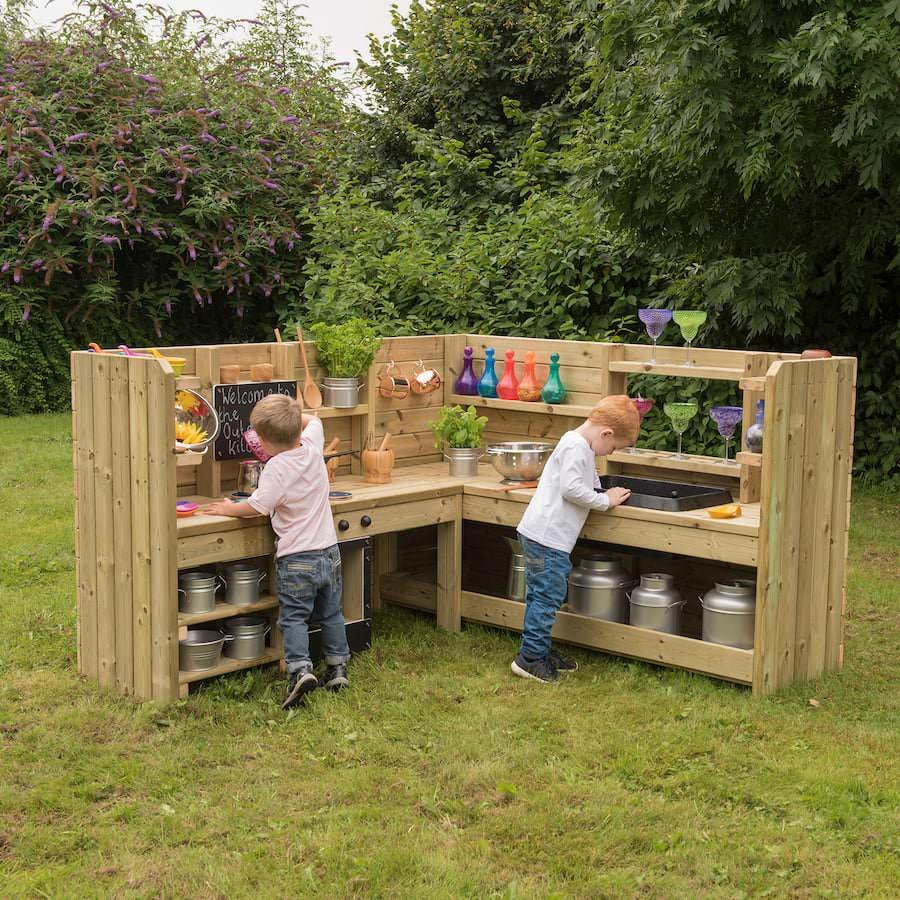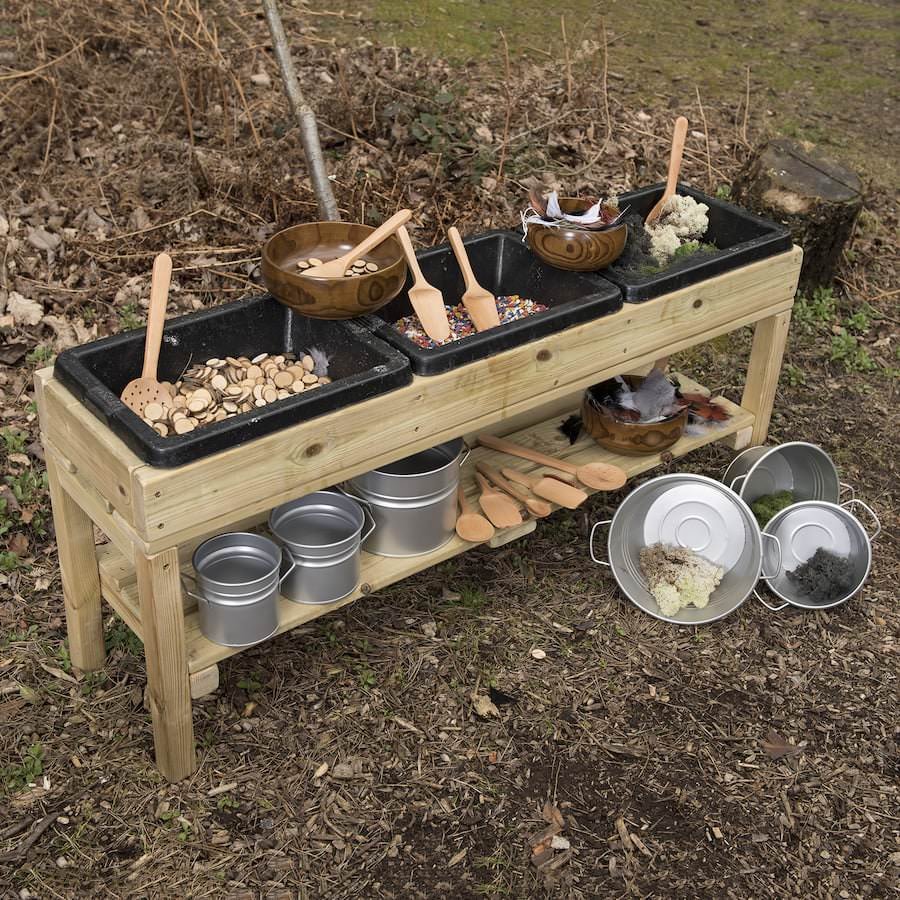Mud kitchens, those charming outdoor play setups, are fantastic for sparking children’s imagination and creativity. By encouraging hands-on play with natural materials, these kitchens allow children to experiment and learn in an unrestricted environment. Simple in concept, a mud kitchen can be as basic as a corner of the garden equipped with old pots, pans, and wooden spoons where children mix soil, water, and their boundless imagination.
What is a Mud Kitchen?
A mud kitchen is essentially an outdoor play kitchen that uses dirt, water, and natural elements as cooking ingredients. Typically crafted from old furniture or pallets, these kitchens are rugged and durable, designed to withstand all weather conditions. The simplicity of a mud kitchen invites children to delve into sensory play, which is crucial for their cognitive and physical development.
Not just a fun addition to your garden, mud kitchens serve as a canvas where young minds create make-believe feasts. From mud pies to stone soup, the array of recipes is limitless, each concoction a testament to a child’s creativity.
Benefits of Mud Play
Engaging in mud play has profound developmental benefits for children. It enhances fine motor skills as they scoop, stir, and pour. Cognitive abilities are also honed through problem-solving and imaginative scenarios that often accompany mud kitchen activities. Mud play isn’t just about getting dirty; it’s a rich educational experience.
Playing with mud can boost children’s immune systems and improve their moods. The tactile nature of mud play, where children feel and manipulate the earth, provides a grounding experience that promotes emotional well-being.
Essential Mud Kitchen Equipment
To set up a basic mud kitchen, you need a sturdy base like a table or a bench, containers for mixing, and tools for digging and stirring. Old kitchen utensils, bowls, and even discarded food containers can be transformed into the main equipment for a budding mud chef. For those looking to enhance their mud kitchen, mud kitchen equipment from TTS offers an excellent variety, including robust, child-safe tools designed specifically for outdoor play. This equipment can endure rough handling and outdoor weather, making them perfect for little ones to enjoy year-round.
Integrating Learning Opportunities
Mud kitchens offer more than just play. They are a dynamic environment where educational opportunities can be seamlessly integrated. Parents and educators can introduce basic concepts of mathematics and science through activities like measuring water or discussing the properties of mud. Language skills are also developed as children articulate their play experiences or dictate their imaginative recipes.
This form of play-based learning is effective because it engages children in a context that is meaningful and directly interactive, facilitating deeper understanding and retention of educational concepts.
Fostering Social Skills
When children gather around a mud kitchen, they learn to share, negotiate, and cooperate. These kitchens are fantastic social hubs where kids undertake projects that require teamwork. Social interaction in this context helps children develop empathy and communication skills, which are essential for personal and academic success. Playing together also teaches children about respecting others’ ideas and contributions, fostering a sense of community and mutual respect among young learners.
Final Thoughts
Mud kitchens are a splendid resource for encouraging creative and educational play among children. They offer a unique blend of fun, learning, and sensory exploration, making them an ideal addition to any garden or play area. By investing in a mud kitchen, parents and educators can provide children with a tool that enriches their development while they simply enjoy the magic of childhood.


